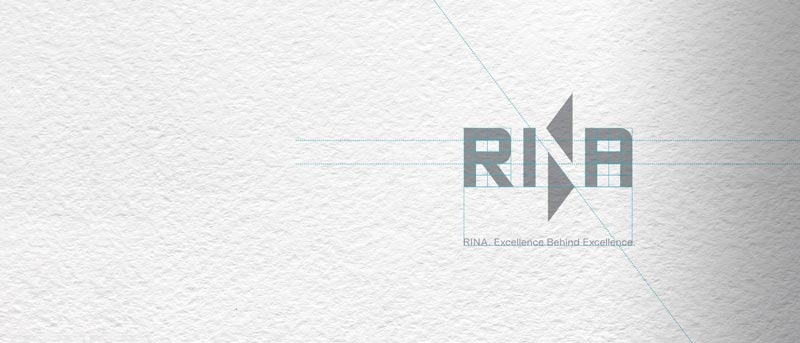Reflecting a business focussed digital future, RINA, the certification, testing, inspection and consultancy multinational organization, unveiled on the15th of December its new corporate brand identity to clients worldwide.
With a history of more than 150 years, RINA has transformed its logo, which captures the company’s distinctive characteristics. The new brand reflects RINA’s experience and ability to innovate, represented symbolically by two triangles that point to the past and the future.
RINA’s new positioning acknowledges the new role of digitalisation. This is not only evident within the company’s own in-house processes, but also the external services it offers through the strategic application of technology, such as big data and artificial intelligence.
Cube is a cloud-based platform, created by a dedicated team of 50 people within RINA. This platform guides clients through the process of predictive asset management. In addition, this tool can interact with the most common technologies, making it easy to use for everyone, from large multinationals to companies in the retail sector, helping them to reduce costs. This new approach leverages the latent value of existing available data, through which companies gain competitive market advantage.
RINA has been recognised throughout its history for reliability, credibility and impartiality. Those values have now been incorporated within the digital platform that will convert data into useful actionable information, seamlessly integrating all parties within a system. For example, in the management of the logistics chain, the platform can be used throughout the whole process, with information being securely accessed by authorised users at all stages, resulting in the optimisation of the entire process.
Ugo Salerno, Chairman and CEO of RINA, said, “The volume of available data is growing exponentially. It is forecast that, by 2020, 75% of companies will be fully digitalised, but only those companies able to process this data intelligently will remain competitive. RINA now has the capability to bring technical, process, and business skills together within a digital environment”.
In the oil sector, it is estimated that digital asset management, using sensor networks for example, can reduce costs by 25% and increase production by 8%. The advantages of digital innovation are also represented by the possibility of creating a digital twin at the design stage of an infrastructure, by predictive maintenance and by improved energy efficiency management. Training also benefits from the opportunities offered by digitalisation. RINA is already developing and managing new virtual immersive environment training programs.
Cube has been designed to operate in all the sectors in which RINA is active, including certification services for small and medium-sized enterprises, such as the periodic audits for lifts and electrical systems. For some years now, RINA has been using digital tools in order to speed up audits, reduce errors to a minimum and standardise processes.
In its move to fully embrace digitalisation, RINA is also involved in protecting data. In fact, the company has already certified a number of data centres. Recently, RINA certified a well-known player in the telecommunications sector in compliance with the ANSI TIA-942 standard. This standard defines the requirements for the resilience of a data centre and its capacity to guarantee the continuity of services provided in case of a maintenance or hardware fault.
In addition, RINA is developing a fully digitalised certification system that automatically guides the user through the online process, culminating in the issuance of a certificate. One of the first applications of this new approach relates to cyber security. “Cyber Essentials” certification enables companies to show the degree of protection they have against potential attacks.
“We chose to launch our new brand identity at this time, because this is the moment when the competence of RINA, the new scenario and market demand meet. We can now help our clients to make the critical step towards the application of new technologies, that are already revolutionising our lives, to their business,” concluded Mr Salerno.
In parallel to the company’s digital transformation, RINA has also embarked on an internal reorganisation programme. As a multinational company, RINA has grown in the last 5 years by 50%. Going forward the company will focus on the business sectors to enhance the rate of growth of those with higher potential: renewable energy, materials and certification.
RINA’s turnover at the end of 2017 is expected to be in line with the previous year, but marked by an improvement in profitability. Going forward the company will operate in five sectors: energy, shipping, certification, transport and infrastructure, industry.






